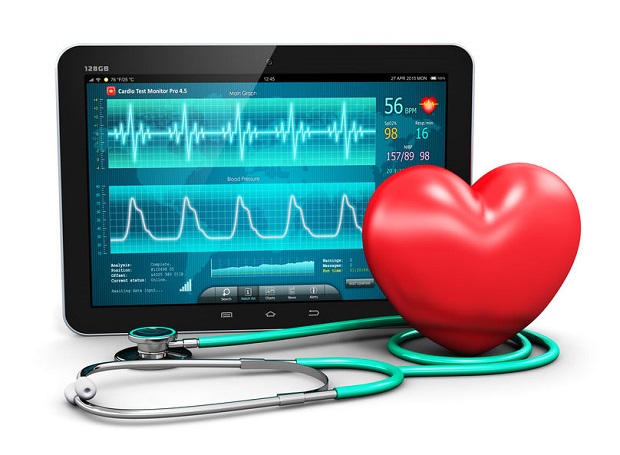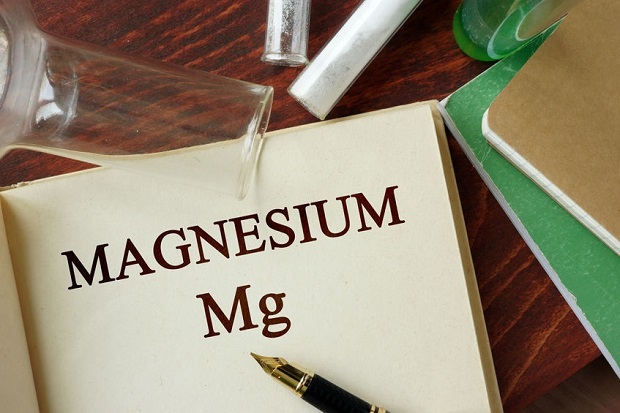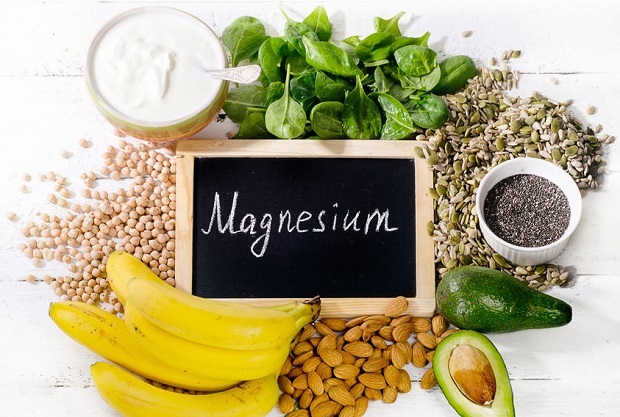
Can Magnesium Lower Blood Pressure?
Magnesium can lower blood pressure. After years of inconsistent research results, the American Heart Association published a 1998 study confirming magnesium’s potentially beneficial impact on high blood pressure. [1] Too much magnesium can cause serious health effects, including severely lowered blood pressure. [2]
Jump Ahead
- Study Reveals Magnesium Slightly Lowers Blood Pressure
- Why Magnesium Lowers Blood Pressure
- Magnesium Supplements for High Blood Pressure
- Dietary Magnesium Lowers Blood Pressure
- Glossary of Terms
- Expert Opinion
- Resources
Study Reveals Magnesium Slightly Lowers Blood Pressure

The study, published in the Hypertension Journal of the American Heart Association, closely monitored 60 study subjects taking magnesium over a period of eight weeks, measuring their blood pressure daily at home and the office. Although the differences in blood pressure were small when the magnesium-fueled period was compared to the non-supplemented data, it was still noticeable enough to be conclusive. [3]
The Japanese researchers involved in the study found that the study subjects’ blood pressure averaged about 2.7 millimeters less mercury in systolic pressure and 1.5 millimeters of mercury less in diastolic pressure. Systolic and diastolic are the high and low blood pressure measurements separated by the expression “over.” The higher the blood pressure in the patient, the more noticeable the result was during this study. [4]
Why Magnesium Lowers Blood Pressure

Magnesium is essential for the growth and maintenance of the bones. It also maintains nerve and muscle function, keeps the heart rhythm steady, and supports the immune system. Because magnesium is absorbed in the small intestines, it helps to neutralize stomach acids and move stools through the intestines. [5]
Magnesium plays a role in more than 300 different enzyme systems in the body and is essential to various metabolic processes, such as the synthesis of protein, fat, and nucleic acids, glucose utilization, and muscle contractions. [6] Research is exploring magnesium supplementation in managing various conditions, including hypertension, type 2 diabetes mellitus, cardiovascular disease, asthma, and pain. [7]
Magnesium Supplements for High Blood Pressure

Though research has indicated that magnesium may play a role in managing blood pressure, you should not replace prescribed hypertension medication in favor of magnesium supplements. In fact, you shouldn’t take magnesium supplements without the advice of a physician. Too much magnesium can cause serious health effects. In addition to severely lowered blood pressure, excess magnesium can cause an irregular heartbeat, confusion, slowed breathing, coma, and death. [8]
Dietary Magnesium Lowers Blood Pressure

It’s not just magnesium supplements that point to normal blood pressure. Those individuals who pursue a healthy intake of fruits and vegetables rich in magnesium are consistently found to benefit from it in this critical body regulation measurement area. Low-fat dairy foods can also have a real impact on blood pressure when combined with fruits and vegetables. [9]
Until recently, the findings associated with such foods were muddied by the fact that these items are also rich in potassium and fiber. However, the gradual sophistication of research and instrumentation tools has finally allowed proponents of DASH (Dietary Approaches to Stop Hypertension) to state that magnesium can categorically lower blood pressure. [10]
Physicians specifically design the DASH diet for those with high blood pressure or pre-hypertension symptoms. It was recently rated as America’s top diet program by a panel of physicians and other experts and has been shown to impact blood pressure in as little as 14 days. [11]
Glossary of Terms

Glucose Utilization: Glucose is the main type of sugar in the blood and is the major energy source for the body’s cells.
Kidshealth.org
Hypertension: High blood pressure is a common condition in which the force of the blood against your artery walls is high enough that it may eventually cause health problems, such as heart disease.
Mayo Clinic
Nucleic Acid: Any of a group of complex compounds found in all living cells and viruses, composed of purines, pyrimidines, carbohydrates, and phosphoric acid. Nucleic acids in the form of DNA and RNA control cellular function and heredity.
American Heritage Dictionary
Pre-hypertension: an American classification for cases where a person’s blood pressure is elevated above normal but not to the level considered to be hypertension
Wikipedia
Expert Opinion

“In addition to being a low salt (or low sodium) plan, the DASH diet provides additional benefits to reduce blood pressure. It is based on an eating plan rich in fruits and vegetables, and low-fat or non-fat dairy, with whole grains. It is a high fiber, low to moderate fat diet, rich in potassium, calcium, and magnesium. ”
Resources
- [1][2][3] Kawano, Yuhei, et al. “Effects of Magnesium Supplementation in Hypertensive Patients: Assessment by Office.” Hypertension-Journal of the American Heart Association, 1998; vol. 32; pp:260-265
- [4] National Institutes of Health – “Magnesium.”
- [5] [8] WebMD – “Magnesium: Uses, Side Effects, Interactions, Dosages, and Warning.”
- [6] Wester, PO. “Magnesium.” American Journal of Clinical Nutrition. 1987; Volume: 45; Pages: 1305-1312
- [7] Linus Pauling Institute – “Magnesium.“
- [9] US Department of Health and Human Services – “Your Guide to Lowering Blood Pressure.”
- [10][11] Dashdiet.org – “US News and World Reports: Best and Healthiest Diet Plan.”
DISCLAIMER: THIS WEBSITE DOES NOT PROVIDE MEDICAL ADVICE
The information, including but not limited to text, graphics, images, and other material on this website, is for informational purposes only. No material on this site is intended to be a substitute for professional medical advice, diagnosis, or treatment. Always seek the advice of your physician or other qualified healthcare providers with any questions you may have regarding a medical condition or treatment before undertaking a new healthcare regimen, and never disregard professional medical advice or delay in seeking it because of something you have read on this or any other website.





